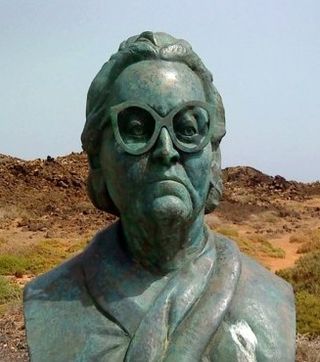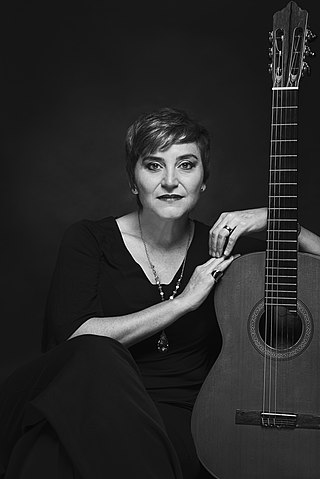
Asunción is the capital and the largest city of Paraguay.

José Plácido Domingo Embil is a Spanish opera singer, conductor, and arts administrator. He has recorded over a hundred complete operas and is well known for his versatility, regularly performing in Italian, French, German, Spanish, English and Russian in the most prestigious opera houses in the world. Although primarily a lirico-spinto tenor for most of his career, especially popular for his Cavaradossi, Hoffmann, Don José and Canio, he quickly moved into more dramatic roles, becoming the most acclaimed Otello of his generation. In the early 2010s, he transitioned from the tenor repertory into exclusively baritone parts, most notably Simon Boccanegra. As of 2020, he has performed 151 different roles.

Paloma Cecilia San Basilio Martínez, known as Paloma San Basilio, is a Spanish singer, songwriter, producer and actress. She was awarded with a Latin Grammy Lifetime Achievement Award for contributions to Latin music. She has sold millions of records throughout her career, with styles that range from melodic songs to pop. She often appeared in various musicals such as the Spanish-language premiere production of Andrew Lloyd Webber's Evita in Madrid. Some other musical theater works include Man of La Mancha, My Fair Lady, Victor/Victoria, and Sunset Boulevard.

Josefina Plá was a Spanish-born poet, playwright, journalist, art critic, sculptor, ceramicist, and historian. She has been described as "the most influential woman in Paraguayan cultural matters in the twentieth century."

June Preston was an American child actress in the 1930s and early 1940s, who began her film career at RKO Pictures, with a minor role as Mrs. Blewett's daughter in the 1934 film Anne of Green Gables.
Seiko Lee is a Japanese soprano who began her musical studies at age four in Tokyo. As a member of the NHK Children's Choir for ten years she traveled on several good-will tours including a concert tour of Eastern Europe. After marrying a South Korean she became interested in Korean music and has performed extensively in Korea. Her second CD, Liberation, is a collection of well-known Korean art songs. The Liberation CD was an important factor in her being invited to sing in North Korea.

Luis Szarán is a Paraguayan musician, orchestra director, composer and musical researcher; since 2002, founder and director of the social and community integration program "Sounds of the Earth", which created the school of music where began the Recycled Orchestra of Cateura.

Rita Aurelia Fulcida Montaner y Facenda, known as Rita Montaner, was a Cuban singer, pianist and actress. In Cuban parlance, she was a vedette, and was well known in Mexico City, Paris, Miami and New York, where she performed, filmed and recorded on numerous occasions. She was one of Cuba's most popular artists between the late 1920s and 1950s, renowned as Rita de Cuba. Though classically trained as a soprano for zarzuelas, her mark was made as a singer of Afro-Cuban salon songs including "The Peanut Vendor" and "Siboney".
Melliangee Pérez-Maldonado is a Puerto Rican lyric soprano singer of classical music and opera as well as other music genres.

Guadalupe Pineda is a Mexican singer considered one of Mexico's grassroots musical icons. She is a recipient of the Latin Grammy Lifetime Achievement Award and a multi-Latin Grammy nominee, she has released more than 30 albums during her career covering various styles of music with sales over 14 million copies worldwide. In 1984, she recorded her breakthrough hit "Yolanda", also known as "Te Amo", composed by Pablo Milanes, selling more than 1.5 million copies. She primarily sings in Spanish but has also sung in French, Italian, English, and Hebrew. She has been called the “Queen of Bolero”, but has also sung ballads, mariachi, tango, ranchera, and opera. Pineda has performed all over Mexico and in various countries in Europe and the Americas.

Ticio Escobar is a Paraguayan lawyer, academic, author, museum director, and former Minister of Culture of Paraguay. He has championed the rights of Indigenous peoples of Paraguay, writing about and curating shows on the topic.
Miguel Ángel Gilardi is an orchestra conductor. He is the son of the Argentinian composer Gilardo Gilardi and María Lucrecia Madariaga.

Berta Rojas is a Paraguayan classical guitarist that won two Latin Grammy Awards on 2022 in its 23rd edition with her latest album entitled "Legado", the first in the "Best Classical Music Album" category, becoming the first Latin Grammy for Paraguay, and the second award in the "Best Contemporary Classical Composition" category for Anido's Portrait: I. Chacarera, composed by Sergio Assad, who was commissioned by the guitarist to write a piece in tribute to María Luisa Anido. In 2012 she was nominated for Best Instrumental Album in the Latin Grammys for her album "Día y Medio " which she recorded with Paquito D’Rivera. For her album "Salsa Roja ", she was nominated at the 2014 Latin Grammy Awards in the category of Best Classical Album. She got her third nomination in the 16th Annual Latin Grammy Awards for Best Tango Album for her album "History of Tango", which she recorded with the iconic Camerata Bariloche.
Mercedes Sandoval de Hempel was a Paraguayan lawyer and feminist. She was one of the leading proponents of women's suffrage in the country, drafting the Anteproyecto de Ley de Reforma Parcial del Código Civil. In 1992, the amendment of the Paraguayan Civil Code finally recognized equality between men and women. The wording of Article 1 of Law 704/61 was simple: “Reconócese a la mujer los mismos derechos y obligaciones políticos que al hombre.”

Josefa Embil Echániz better known as Pepita Embil was a Spanish Basque soprano who starred in zarzuela and operetta productions throughout Spain and Latin America. Known as the "Queen of Zarzuela," she is especially remembered for her son, the internationally famous operatic tenor Plácido Domingo, whose early career she helped to nurture. Embil began her professional career singing as a soloist in choirs, including the Basque national choir, Eresoinka, which based itself in France during the Spanish Civil War. While still in her twenties, she appeared in the world premieres of several new zarzuelas. She collaborated with some of the most prominent Spanish composers of the 1940s, including Federico Moreno Torroba, Jacinto Guerrero, and Pablo Sorozábal. In late 1948, she moved to Mexico with her baritone husband, Plácido Domingo Ferrer. In Mexico they ran a successful zarzuela company of their own, which toured throughout the Americas. Over the course of her career, Embil made several recordings, primarily of zarzuela music.

Sara María Ivonne Haza del Castillo was an operatic soprano from the Dominican Republic. In a career of more than 50 years, she appeared at the National Theatre, and also in the U.S., Puerto Rico, Mexico, and Cuba. She also worked as a voice teacher, director of the National Opera, and speech therapist. She received honours from her home country and Italy, and an honorary doctorate from the Universidad Autónoma de Santo Domingo

Lourdes Espinola is a Paraguayan poet, diplomat, cultural promoter, and literary critic. Daughter of the laureate Paraguayan writer and philosopher Elsa Wiezell, Espinola's academic background includes the fields of health sciences, international relations, as well as philology and literature, at universities of the United States and Europe.
Fedora Alemán was a Venezuelan operatic soprano. One of Venezuela's most celebrated singers, she performed in concert halls throughout Latin America and Europe.

María de la Asunción Uriz Mosquera, better known as María Uriz, is a Spanish soprano.

Juliana, better known as the India Juliana, is the Christian name of a Guaraní woman who lived in the newly founded Asunción, in early-colonial Paraguay, known for killing a Spanish colonist between 1539 and 1542. She was one of the many indigenous women who were handed over to or stolen by the Spanish, forced to work for them and bear children. Since the area was not rich in minerals as they had anticipated, colonists generated wealth through the forced labor of indigenous people—especially the sexual exploitation of women of childbearing age.














